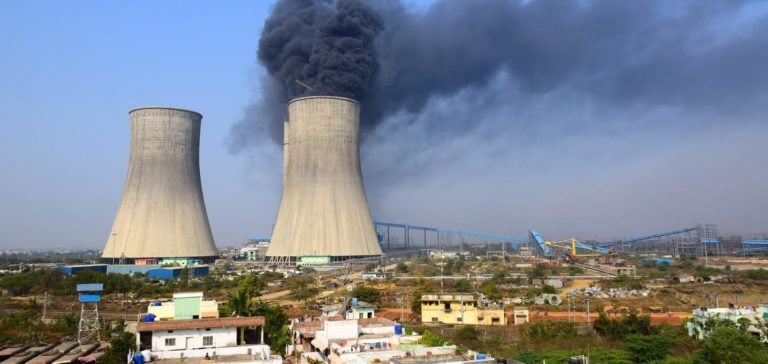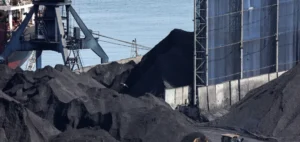Plans to increase coal production in India are raising major concerns about emissions of methane, a particularly potent greenhouse gas.
According to a report published by the think-tank Ember, methane emissions from coal mining could more than double by 2029, threatening the country’s climate targets.
India, already a major source of methane emissions from coal mining, finds itself at a critical crossroads as it seeks to balance its climate commitments with the growing energy demands of its economy.
Coal mining is intrinsically linked to the release of methane into the atmosphere.
This gas, which is second only to carbon dioxide in the amount produced by human activity, is a significant contributor to global warming.
India is currently the world’s second-largest producer, importer and consumer of coal, with domestic production set to rise from 982 million to over 1.5 billion tonnes by 2030.
This increase in production could have a considerable impact on methane emissions, which are already alarmingly high.
The challenges of coal production in India
Ember’s report points out that the expansion of coal production poses a considerable risk to national plans to reduce greenhouse gas emissions.
India is committed to achieving net-zero emissions by 2070, but the planned increase in coal production could jeopardize this goal.
Experts warn that this could have a profound impact on global warming in the short term, exacerbating the environmental challenges facing the country.
As the world’s most populous country, India faces a complex dilemma.
On the one hand, it must honor its climate commitments, and on the other, it must meet the growing energy demands of its rapidly expanding population and economy.
Ember’s report indicates that the unprecedented increase in electricity demand is currently outstripping the capacity of renewable energies to meet this demand, pushing the country to turn to coal.
International commitments and challenges
As part of global efforts to reduce methane emissions, the European Union and the United States launched a “Global Methane Commitment” in 2021.
This commitment aims to reduce methane emissions by 30% below 2020 levels by the end of the decade.
More than 150 countries have signed the pledge, but countries such as China, India and Russia have yet to join the initiative.
This raises questions about international cooperation and the willingness of major emerging economies to commit to decarbonization efforts. “The unprecedented increase in electricity demand in the country is outstripping the capacity of renewables,” emphasizes an Ember representative, highlighting the challenges facing India. The implications of this situation are far-reaching.
On the one hand, India must navigate between its immediate energy needs and its long-term climate commitments.
On the other, the international community is closely watching India’s actions, which could become a model or a counter-example in terms of energy transition.
Decisions taken in the coming years will have repercussions not only on India’s climate, but also on global efforts to combat climate change.
The challenges facing India in terms of coal production and methane emissions illustrate the complexity of the energy transition.
As the country seeks to meet growing energy demand, it must also consider the environmental consequences of its choices.
The need for a balanced approach that integrates both economic needs and climate imperatives is becoming ever more pressing.
The strategic decisions taken today will shape not only India’s energy future, but also its role on the world stage in terms of sustainability and climate.






















